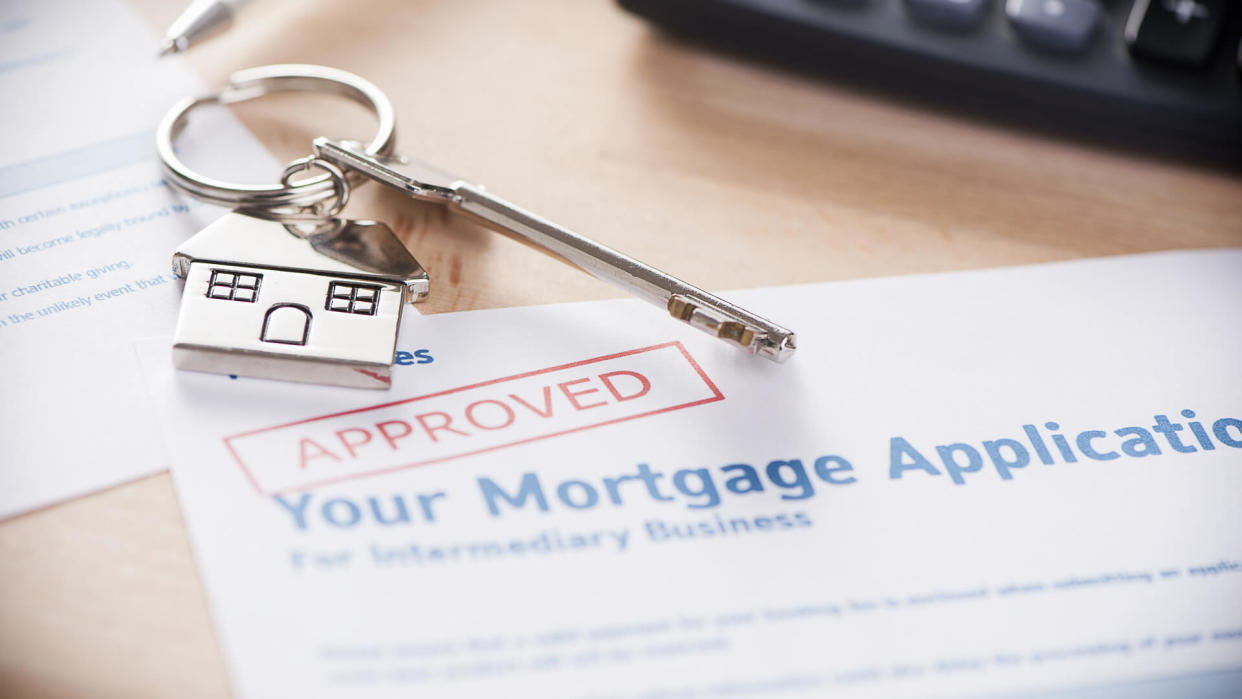How Interest Rates Affect the Housing Market

The news about interest rates isn’t very good these days. Inflation has caused the Federal Reserve to raise interest rates to try to slow inflation, making the cost of borrowing money increase — which includes mortgage loans for prospective homebuyers.
The rate on a 30-year fixed-rate mortgage jumped to 5.78% on June 16, up from 5.23% the prior week, Freddie Mac reported. It was the largest one-week jump since 1987.
Learn: Stimulus Updates To Know for Summer 2022
Rising Gas Prices: The True Cost of Going Electric
“Higher rates mean higher monthly mortgage payments, which result in less buying power for home shoppers. Prospective homebuyers today will not be able to afford as large a mortgage as they would have just a few months ago,” said Richard B. Whitman, the vice president of Texas Mortgage Lending, LLC, which is the mortgage servicer for Credit Union of Texas.
As startling as the rate increases can be to buyers, it’s part of the up-and-down of mortgage interest rates. And if you’re serious about buying, now is the time to act, experts say.
“For prospective home shoppers, rising interest rates essentially mean that it’s time to look at your personal finances and act,” said Carly Wimer, the vice president of mortgage lending at Guaranteed Rate. “The historically low interest rates we experienced during the COVID-19 pandemic were never intended to be permanent; they were simply part of the Federal Reserve’s plan to provide temporary relief to the economy during the COVID-19 pandemic and prevent a total economic collapse.
Live Updates: Financial Trends, Money News and More
“Interest rates started increasing in November 2021, when the Federal Reserve started scaling back on their pandemic relief efforts. As interest rates continue to rise, it’s important that prospective home shoppers remain calm and speak to trusted financial experts about their options.”
See how interest rates affect the housing market.
The Financial Impact of Interest Rate Increases
For every half-percent rise in interest rates, a homebuyer’s buying power drops by about 5%, Wimer said. If a borrower was pre-approved for a $350,000 property and the interest rate went up by a half-percent, a buyer now can expect the buying power to drop by $17,500, she said. That pre-approval will drop to $332,500.
So, if a borrower was pre-approved for a purchase price of $350,000, for every half-percent rise in mortgage rates, buying power would decrease by approximately $17,500.
Whitman said the average purchase loan is $380,000 and, with each half-percent increase rate, a mortgage payment generally will go up by about $120, he said.
Impact on the Real Estate Market
Over the past few years, we’ve seen a red-hot real estate market. In March 2022, housing prices grew 17.5% over the previous 12 months, according to CEIC Data. The good news, Whitman said, is that the housing market might start to cool — at least a bit — and allow some homebuyers a chance to stay in the market despite the rising interest rates.
“This may result in a slowdown in sales, which may lead to a stabilization or reduction in home prices in the future,” Whitman said. “While we haven’t seen that yet, it is anticipated that we will see this type of correction in the market if rates remain high or continue to go higher.”
He continued: “While it’s still technically a sellers’ market, it is slowing. A year ago, submitting an offer over asking pricing was the standard. Today, submitting an offer at asking is reasonable. While purchasing power has decreased, conditions are becoming more favorable for home shoppers as prices stabilize and home inventories improve.”
Lock In Rates
Even though rates are higher than a year ago, home shoppers should lock in rates now to help them should they find a home and put in an offer, Wimer said.
“I recommend that home shoppers work with a lender that has lock and shop programs that allow pre-approved buyers to lock in their mortgage rate — in some cases, for up to 90 days — while they search for a home,” she said. “For home shoppers looking to purchase new construction, I would recommend working with a lender that offers extended rate locks. Most lenders can only lock rates 60 to 90 days out, but there are lenders who have extended lock programs and can lock as far out as 12 months. Those are two of the best ways to protect your pre-approval and maximize your buying power in an extremely volatile market.”
The interest rate today doesn’t have to last 30 years, Wimer said. When the rates go down again, refinancing is a possibility.
“In terms of real estate, everyone needs a house to live in and rent certainly is not getting any cheaper,” she said. “If there is a payment you can afford, buy the home. There will be an opportunity to refinance sometime in the future as interest rates are like a never-ending rollercoaster: They go up and they come back down.”
More From GOBankingRates
This article originally appeared on GOBankingRates.com: How Interest Rates Affect the Housing Market
